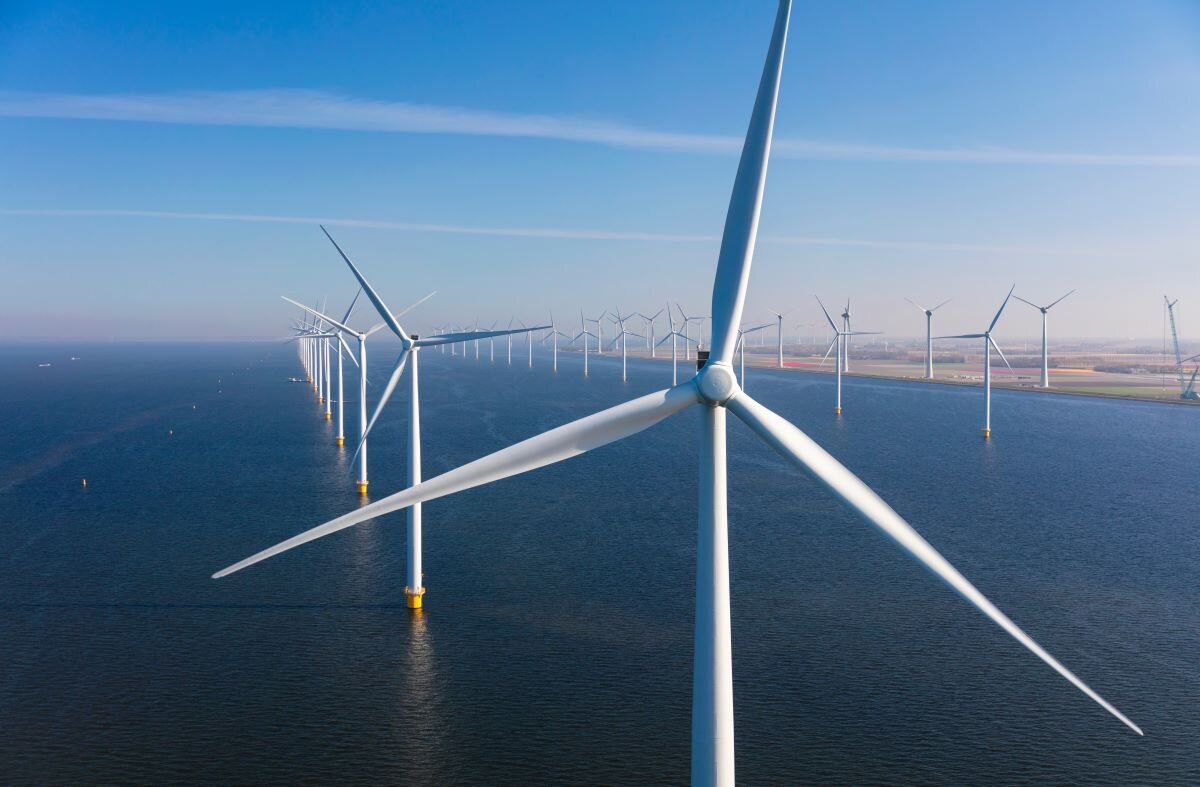UK green growth is the ‘economic opportunity of the 21st century’. Britain is well-positioned to be at the forefront of the global economic transition to Net Zero, with its leading insight into key growth sectors like offshore wind, world-class universities and the City of London’s place at the heart of the global financial system. However, if the government fails to support industry and react to international competition such as the Inflation Reduction Act £224bn could be wiped off the UK economy by 20501.
The Climate Change Committee (CCC) estimates that UK low-carbon investment will need to scale up to £50 billion per year to deliver net zero, with the majority of this investment expected to come from the private sector. The OBR has also stated that the earlier we act, the lower the costs will be to taxpayers – both in terms of targeting public spending and lowering household bills. Moreover, prioritising green growth will be critical to ensure the UK’s long-term productivity and tackle the climate and nature crises at the scale and speed required.
However, unlocking the significant private sector investment appetite requires strategy, ambition, and a steady hand in the form of policy consistency. In an increasingly competitive international environment for green investment, ensuring the UK remains an attractive place to invest requires government to set out a plan.
Earlier this year, leading UK institutions managing over £3 trillion in AUM called for the government to deliver a UK Net Zero Investment Plan, calling it “a crucial element of the governance architecture required to ensure that the UK reaches its emissions reduction targets in a way that can leverage private sector investment into the UK’s net zero transition, boosting growth in the process.”
E3G and WWF’s latest briefing sets out why announcing a Net Zero Investment Plan as part of this year’s Autumn Statement will shore up business certainty, enable the effective targeting of scarce public resources and unleash the potential of the private sector. This briefing clarifies the steps that the UK government must take to deliver it in full, including improving:
To effectively achieve the UK’s decarbonisation goals, the government should formulate and periodically update sectoral financing roadmaps. These roadmaps will set out how, regulations, incentives, and strategic public finance usage will be used to encouraged private capital to crowd in. The roadmaps should address all sectors vital for decarbonisation and provide a holistic view rather than the current fragmented technology-specific outlook. This strategy will pave the way for cost-effective decarbonisation, emphasizing interventions to boost private investment while maintaining consistent market trust.
There is a pressing need for reliable and transparent financial flow data. This data would best be managed by an independent expert body, akin to the OBR or the CCC, tasked with analysing financial flows supporting net zero goals and advising the government of potential fiscal decisions. This evaluation would be continuous, allowing the body to suggest measures to overcome market barriers and to act as a conduit to the private sector, helping to direct private finance where it is needed most. To bolster this, a Net Zero Delivery Tracker should be implemented, analysing public financial flows before fiscal events and providing insights aligned with climate objectives.
To improve both data and delivery this briefing recommends the production of:
- Consistently updated, transparent evidence and data to help government departments and industry to measure progress against the country’s goals for financing the transition and removing barriers to investment. This body would also provide a home for agile and ongoing market engagement.
- Sectoral financing roadmaps which address any financing gaps demonstrated in the data by creating incentives to crowd in private finance and remove market barriers.
- One reference document allowing industry to understand the Government’s holistic approach to financing the transition that explicitly maps onto our carbon budgets, and ladders up from the individual sectoral financing roadmaps. It would also tackle cross-cutting issues; helping address the siloed policymaking that is often a major challenge with climate policy.
Read the briefing in full here.

This briefing was written with support from The Investment Association, Aviva, The Institutional Investors Group on Climate Change (IIGCC) and Climate Policy Initiative (CPI).



